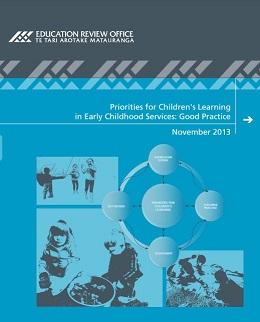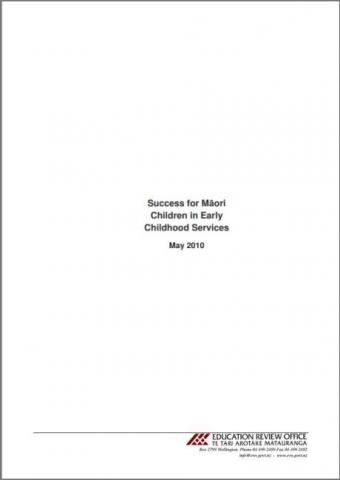Priorities for Childrens Learning in Early Childhood Services: Good Practice
Published: 01 Nov 2013
This good practice report presents examples from five early childhood services where priorities for children’s learning were well considered and reflected on.
- Audience:
- Early learning
- Māori-medium
- Parents
- Content type:
- Research
- Topics:
- Early childhood services
- Good practice
- Te Whāriki
- Māori
- Pacific



